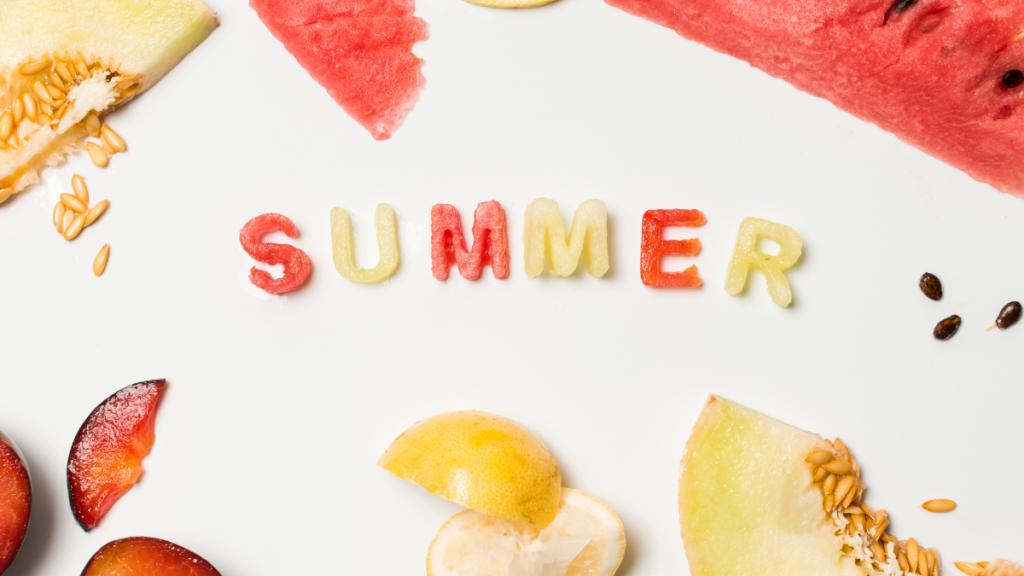Summer is a peak season for athletes, offering longer days, better weather for outdoor workouts, and opportunities for sports training, camps, and competition. But with hot temperatures and intense physical activity comes the need for a well-structured diet that supports performance, hydration, recovery, and overall health.
Sure, we all crave a cool ice cream treat after working up a sweat during the summer. But athletes must fuel their bodies properly to perform to the best of their ability.
“Summer changes everything,” celebrity personal trainer Kollins Ezekh said. “In my opinion, the most common mistake is just not eating enough, especially around training. Since I started working with young athletes, I’ve seen how easy it is for them to either skip meals or just grab whatever’s quick, like chips or candy. The problem is, their bodies are growing and training hard — that combination needs real, consistent fuel.”
This summer training nutrition guide provides athletes with the best tips to ensure their diet keeps them on track to achieve their fitness goals this season.
Balanced Macronutrients
While Ezekh follows a plant-based diet, he makes sure to consume plenty of calories from quality carbs, healthy fats, and protein to stay strong and recover properly.
Summer training demands energy, and that energy comes from the three main macronutrients: carbohydrates, proteins, and fats.
Carbohydrates are the body’s primary fuel source, especially for high-intensity sports. Athletes need to focus on complex carbs like whole grains, fruits, and vegetables to provide sustained energy. Be mindful of timing. Eat a carb-rich meal two to three hours before training and a quick-digesting snack (like a banana or granola bar) 30–60 minutes prior.
Proteins are crucial for muscle repair and recovery. Include lean protein sources like chicken, turkey, eggs, Greek yogurt, tofu, legumes, or fish in meals. After a workout, aim for a post-training snack with a 3:1 or 4:1 carb-to-protein ratio (such as chocolate milk or a smoothie with fruit and protein powder).
Healthy fats, such as those from nuts, seeds, avocados, and olive oil, provide long-lasting energy and aid in nutrient absorption. While fats shouldn’t be the main source of fuel for training, they are still an important part of a balanced diet.
Hydration Is Key
The key element of a summer sports diet is hydration. Dehydration can negatively affect performance, delay recovery, and increase the risk of heat-related illnesses.
Athletes should aim to drink water consistently throughout the day, not only during workouts. During intense training, especially in hot weather, electrolyte-rich drinks (like sports drinks or coconut water) can help replenish sodium, potassium, and magnesium lost through sweat.
A good rule of thumb is to drink 16–20 ounces of water two hours before training, sip water during activity, and rehydrate after workouts based on weight loss—approximately 16 ounces for every pound lost.
“Since I’ve been through years of training in the heat, I’ve learned how much more you lose — not just water, but electrolytes,” Ezekh said. “In my opinion, hydration has to be a top priority.”
The L.A.-based boxer said there’s more to hydrating than simply drinking more water. “You’ve got to add things like fruits with potassium like bananas and oranges, and even a pinch of sea salt with meals can help keep things balanced. I also lean into lighter meals in the heat — smoothies, cold grain bowls, or wraps with protein are easier to digest and still give you what you need.”
Seasonal Nutrient Boosters
Summer offers plenty of fresh, nutrient-rich produce options that can enhance an athlete’s diet. Watermelon, berries, cucumbers, and citrus fruits are hydrating and packed with vitamins and antioxidants that aid in reducing inflammation and supporting immunity.
“Keep it simple,” Ezekh said of summer training diets. “Real food. Stuff that grew or was made from real ingredients.”
Incorporate leafy greens, tomatoes, zucchini, and peppers into meals for added fiber and phytonutrients. Smoothies, salads, and chilled grain bowls are refreshing and convenient ways to include more of these foods.
Smart Recovery Strategies
Post-training nutrition is essential for replenishment and recovery. Recovery is non-negotiable,” he said. “Even though I’m vegan, I still make sure I get in protein and carbs right after a session — it makes a huge difference in how you feel the next day.”
Ezekh said to have a full meal a few hours before your event, and then a light snack like a banana or some toast 30–60 minutes post-workout.
Combine carbs to refuel glycogen stores and protein to repair muscles. Hydrate adequately, and consider foods rich in omega-3 fatty acids (like salmon or chia seeds) to support recovery.
Final Summer Nutrition Tips
- Avoid heavy, greasy foods that can impair digestion in the heat.
- Eat smaller, more frequent meals to maintain energy levels.
- Listen to your body—cravings and fatigue can signal nutrient deficiencies or dehydration.
- Don’t try anything new on race day. “Since I’ve seen how nerves can throw things off, it’s important to know what works for your body in advance,” Ezekh said.
A smart summer diet fuels your training, enhances performance, and protects your health. By focusing on hydration, balanced nutrition, and recovery, athletes can train harder and recover faster—all while enjoying the flavors and freshness of the season.

